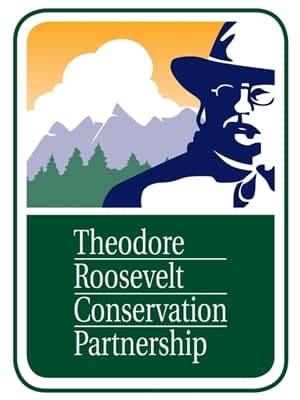Sport Anglers Gear up for Role in Gulf Restoration Strategy

RESTORE Act funds rehabilitation of resources affected by Deepwater Horizon oil spill; sportsmen stress that conservation activities should drive economic recovery.
Restoration of the fisheries, natural resources and economies devastated by the 2010 Deepwater Horizon oil spill progressed today with the release of a federal plan detailing implementation of the RESTORE the Gulf Coast Act, which was signed into law last year.
The Theodore Roosevelt Conservation Partnership and its partners welcomed this afternoon’s announcement and confirmed that recreational anglers – both in the Gulf and across the country – intend to remain heavily invested in restoration of the region’s natural resources and fisheries and will engage with federal decision makers as the RESTORE Act is implemented.
The report, “The Path Forward to Restoring the Gulf Coast,” released today by the Gulf Coast Ecosystem Restoration Council, details the strategy for allocating and dispensing Gulf Coast restoration funds. The RESTORE Act dedicates 80 percent of Clean Water Act penalties charged to BP and other entities responsible for the disaster to rehabilitation of resources in the Gulf region.
“The RESTORE Act stands as a welcome instance of bipartisan collaboration,” said TRCP President and CEO Whit Fosburgh, “and sportsmen are heartened to see progress being made toward recovering the Gulf Coast’s unique natural resources, as well as the outdoor activities and economies that rely on a healthy Gulf ecosystem.
“The roadmap for implementation of the RESTORE Act is based on practical strategies – including reliance on the best available science and adaptive management practices – that have long informed approaches taken by the TRCP and our partners,” continued Fosburgh. “We are encouraged by this approach to Gulf restoration, and we stress that natural resources recovery can and should be used to drive economic recovery. If recovery funds are directed first toward habitat rehabilitation and conservation, the region’s economy will be strengthened as a result.”
Nationally, activities related to saltwater angling support 243,000 jobs and contribute more than $32 billion annually to the economy. Of this total, the Gulf region supports close to 100,000 jobs and generates more than $10 billion annually.
Following the oil spill, the TRCP developed a series of recommendations for restoration of the Gulf’s fisheries, fish and wildlife habitat, and economy. Read the TRCP report “The Gulf Spill Recreational Fishing Response Group: Recommendations for Resource Recovery.” The TRCP will continue to solicit input from the region’s recreational anglers regarding specific conservation projects and activities.
Read the TRCP 2013 Conservation Policy Agenda.

